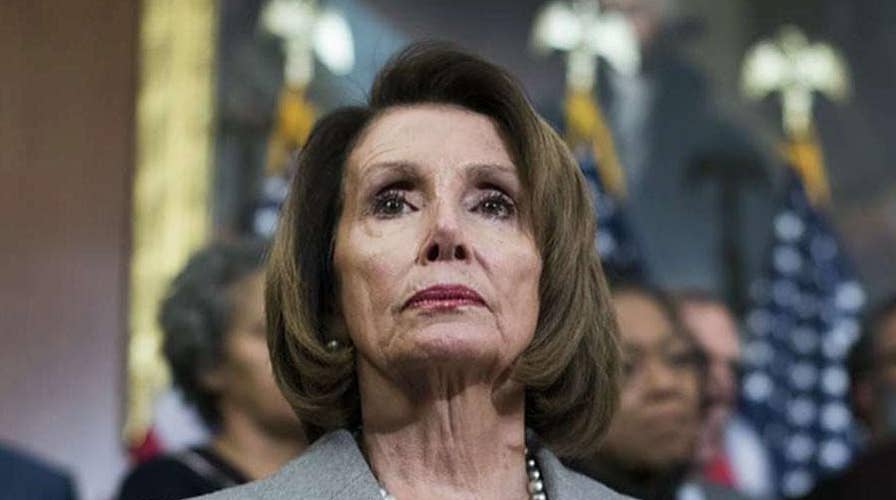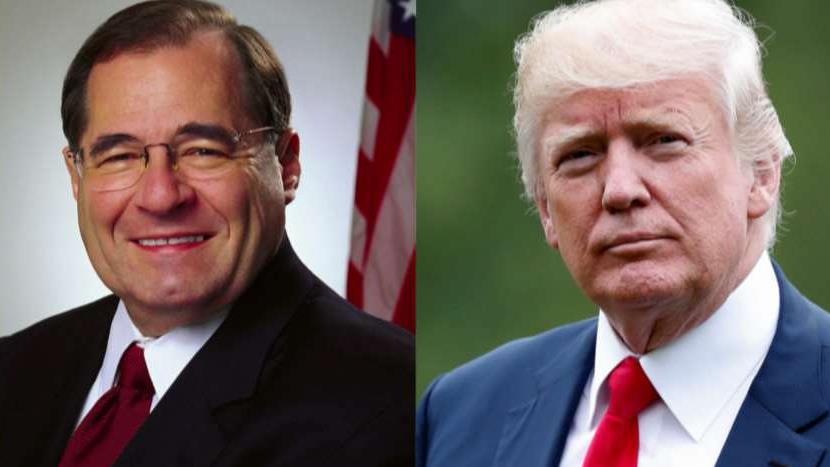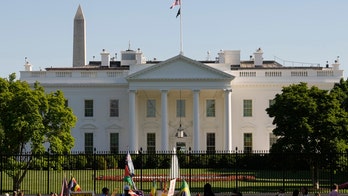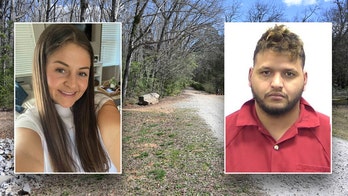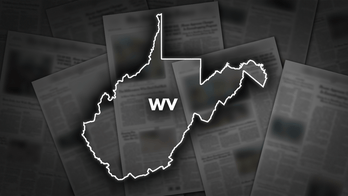House Democrats are preparing to vote Friday on a sweeping ethics and campaign finance reform package known as the For the People Act, and in response the White House issued its second veto threat of the year on Tuesday, calling the proposal a reckless move that would increase opportunities for rampant voter fraud and chill free speech.
The bill, known as H.R. 1, purportedly aims to eliminate “culture of corruption in Washington” and to reduce the role of money in politics. It would make it easier for citizens to register and vote, tighten election security, and establish a small-donor public matching system in congressional elections.
In a direct shot at Trump, the bill would require presidents to release at least 10 years’ worth of tax returns. The bill also would ban executive-branch officials from lobbying their old agency for two years after they leave government, and reauthorize and enhance the Office of Government Ethics, which has clashed with Trump.
Additionally, the Act would require groups like the Chamber of Commerce that spend more than $10,000 on political messaging to disclose the identity of their contributors who gave more than $10,000 -- prompting several business groups to raise concerns about their ability to communicate with politicians.
HOUSE DEMS RAMP UP EFFORT TO GET TRUMP'S TAX RETURNS, SETTING UP SEPARATION-OF-POWERS SHOWDOWN
"The $10,000 donor threshold appears designed to target business organizations while largely sparing labor organizations from disclosure of their funding sources, which are typically union dues that are far less than $10,000," Neil Bradley, the executive vice president and chief policy officer at the U.S. Chamber of Commerce business lobbying group, told reporters on Tuesday.
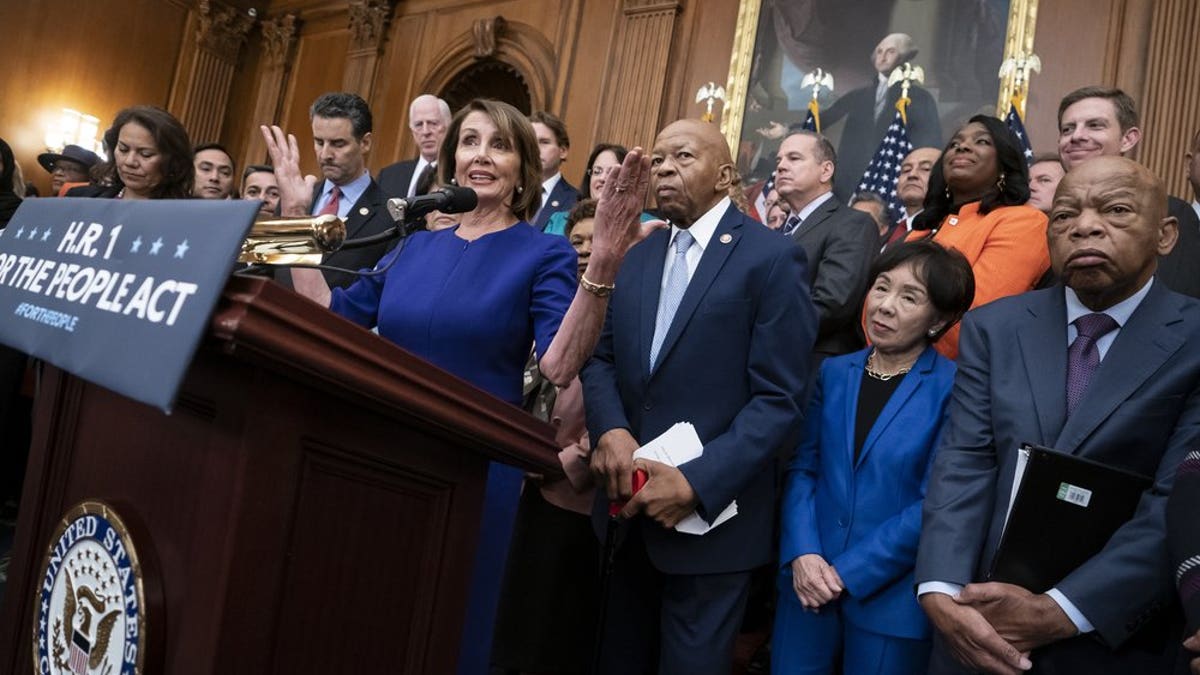
Speaker of the House Nancy Pelosi of Calif., and House Democrats, now in the majority, unveil a comprehensive elections and ethics reform package that targets what they call a "culture of corruption in Washington" and aims to reduce the role of money in politics, at the Capitol in Washington, Friday, Jan. 4, 2019. She is joined from left by Rep. Veronica Escobar, D-Texas, Rep. John Sarbanes, D-Md., Rep. Elijah Cummings, D-Md., chairman of the Committee on Oversight and Government Reform, Rep. Doris Matsui, D-Calif., and Rep. John Lewis, D-Ga. (AP Photo/J. Scott Applewhite)
Senate Majority Leader Mitch McConnell, R-Kentucky, has long pronounced the reform measure dead on arrival in the Senate, where it faces long odds. And the White House, which has already vowed to veto the ongoing effort by Congress to strike down his national emergency declaration over border wall funding, issued a statement Tuesday outlining the administration's problems with the legislation.
"If H.R. 1 were presented to the President, his advisors would recommend he veto the bill," the statement flatly concluded. Trump has not yet vetoed any legislation.
One of the measure's most notable provisions would restore protections included in the 1965 Voting Rights Act and guard against efforts by state officials to purge voting rolls.
Rep. John Lewis, D-Ga., a veteran of the civil rights movement, called voting “the most powerful, non-violent instrument of transformation we have in our democracy,” and said efforts to make it easier to vote — not harder — were crucial. “I truly believe deep in my heart that the way votes were not counted and purged in Georgia and Florida and other states changed the outcome of the last election” to harm Democrats, Lewis said. “That must never happen again.”
"If H.R. 1 were presented to the President, his advisors would recommend he veto the bill."
However, the White House said it saw that provision as an invitation to voter fraud.
"H.R. 1 would prohibit commonsense efforts to clean up voting-rolls to limit opportunities for voting fraud," the White House said. "The bill would also require States to adopt online registration, same-day registration, and automatic voter registration, thus imposing a one-size-fits-all standard for weighing the competing values of voter access and voting integrity."
The White House statement continued: "Furthermore, H.R. 1 would enhance the powers of the Federal Election Commission (FEC) Chairman and reduce the number of FEC members from six to five, thus increasing the chances that the FEC becomes a partisan entity with undue power to shape and regulate elections nationwide."
Other objections raised by the Trump administration centered on the bill's advance of political redistricting mandates, as well as its possible effects on First Amendment rights.
In a move designed to reduce partisan gerrymandering, the bill calls for states to establish independent redistricting commissions to draw boundaries for future congressional districts.
"The legislation would force States to create unelected bodies and then delegate redistricting decisions to them," the White House's statement said in response. "This would suppress the voices of our Nation’s citizens and cut off a nationwide debate on how best to pursue fair and ethical redistricting processes throughout the country."
Besides election provisions, the bill would set up a public financing system for House races and require political groups to disclose donors. Social media platforms such as Facebook and Twitter would be required to disclose who paid for online ads, similar to existing rules for television and other media.
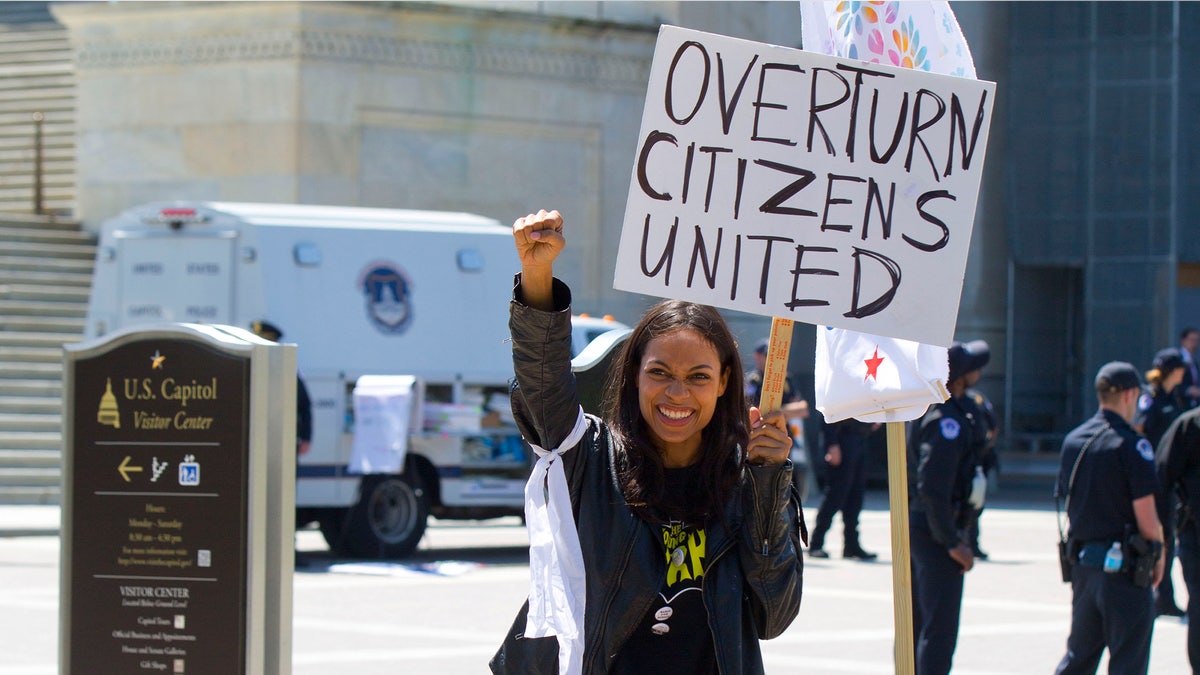
Actress Rosario Dawson takes part in a demonstration on Capitol Hill in Washington, Friday, April 15, 2016. The demonstration, called Democracy Spring, is advocating a set of reforms the organizers have dubbed the "democracy movement," demanding Congress amend campaign finance laws and restore the Voting Rights Act, among other actions. (AP Photo/Pablo Martinez Monsivais)
"H.R. 1 also chills free speech by creating requirements that would limit the ability of Americans to participate in advocacy without undue compliance costs and without fear of public reprisals," the White House countered. "The bill would establish costly and unnecessary programs to finance political campaigns, and force American taxpayers to finance Federal candidates they may not support."
But Maryland Democratic Rep. John Sarbanes said Democrats were “responding directly to the American people and what they want to see in our democracy,” as shown by the election results in the 2018 midterms.
Calling the bill “transformative,” Sarbanes said in January it will “strengthen our democracy and return political power to the people by making it easier, not harder, to vote, ending the dominance of big money in our politics and ensuring that public officials actually serve the public.”
“You could stamp on this thing ‘McConnell-rejected,’ and it would immediately give it more credibility,” Sarbanes said. The legislation was not built for McConnell or any lawmaker, Sarbanes added: “This was built for the public.”
House Speaker Nancy Pelosi also touted the bill, saying it would “restore integrity to government, so that people can have confidence that government works for the public interest, not the special interests.”
On ethics, members of Congress would be barred from serving on corporate boards and could not use taxpayer dollars to settle employment discrimination cases. But the White House argued that those provisions would unnecessarily impede the work of the executive branch with burdensome regulations.
Sarbanes and other supporters said the election security measures are particularly important as the 2020 election nears.
Predicting “historic turnout" in upcoming elections, Sarbanes said officials must not only encourage increased participation, but guard against attempts at sabotage from foreign and domestic adversaries.
“If we’re not ready for that in all the ways [the legislation] seeks to ensure, then we could end up with a train wreck,” he said.
Fox News' Brooke Singman and The Associated Press contributed to this report.
